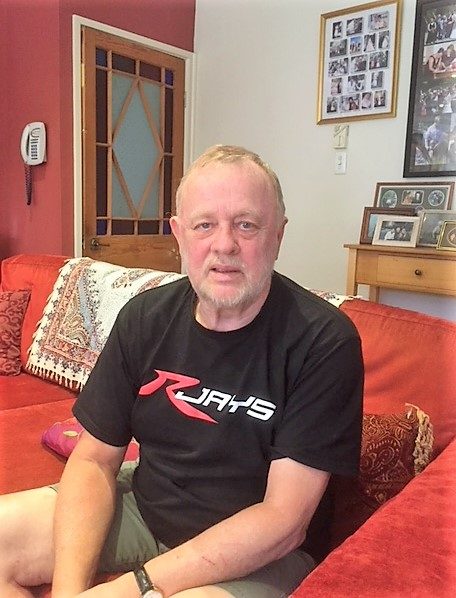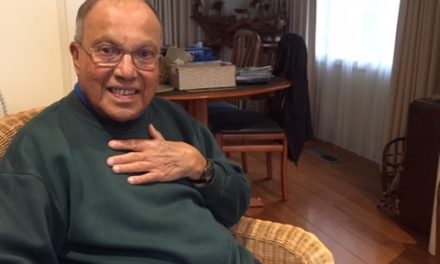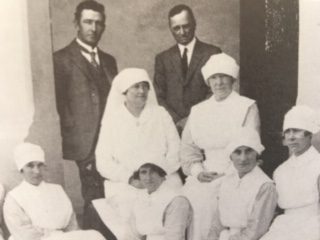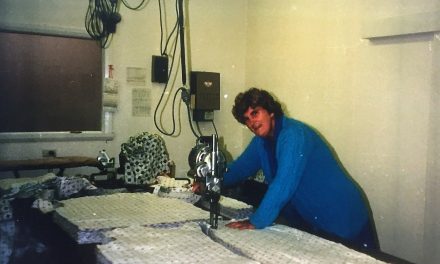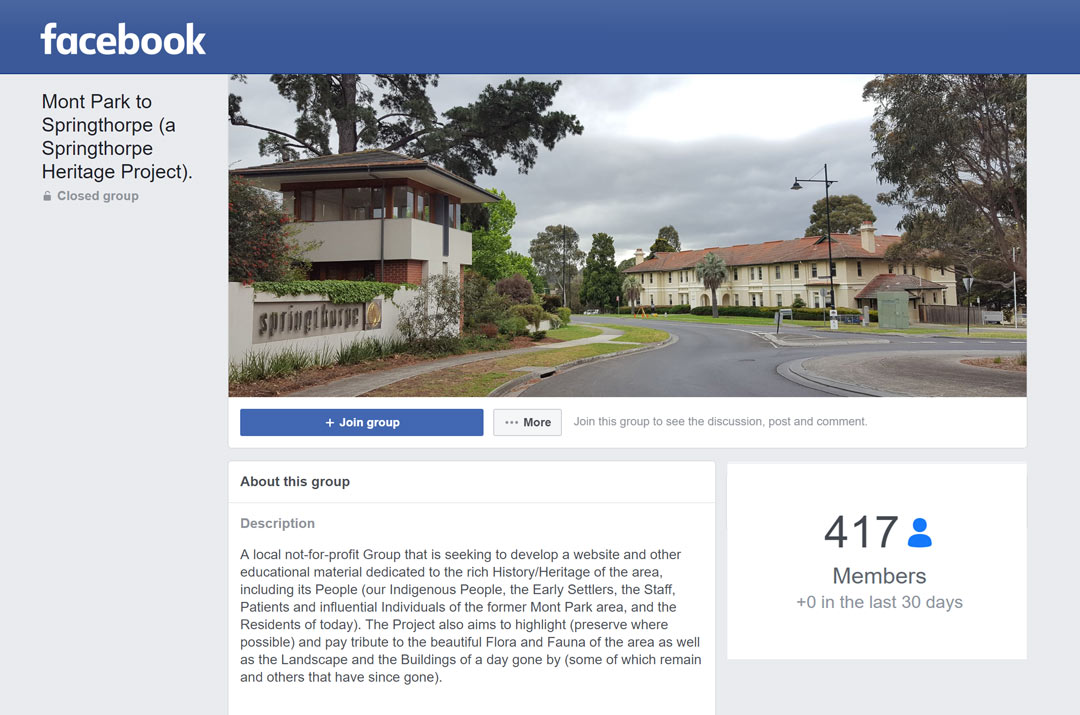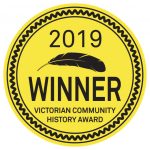Eric Wrigley was born in Manchester, England, in 1943. Eric emigrated from England to Australia in 1962.
In 1963, Eric started at Gladesville psychiatric hospital embarking on psychiatric nurse training over a three and a half year period. It was at Gladesville that he met his wife, Pam, also a nurse. After marrying, the couple decided to move to Victoria as Pam’s family was located in Daylesford. They moved to nearby Ballarat and worked at Lakeside, the Ballarat psychiatric hospital, moving after a couple of years to Melbourne. From 1968 to 1970, Eric worked at Heidelberg Repatriation Hospital while simultaneously completing his General Nursing training there. From 1970, he began working at Mont Park until its closure in the mid 1990s. Eric’s knowledge of Mont Park and his wife, Pam’s, of Larundel, are extensive due to their long work histories. Their stories are many. Their understanding of how these hospitals functioned, of patient care and the development and changes in treatments is extensive. Eric chose to work at Mont Park because they had the surgical and neuro psychiatric units, where he could also utilise his General Nursing qualifications and so maintain his skills.
Eric’s recollections show great knowledge but are recounted with wit and charm and his interview includes many anecdotes which demonstrate the challenges, rewards, developments and some staff and patient ‘shenanigans’ which were part of both working in such a large community or team. He focusses on psychiatric nursing from the 1970s to deinstitutionalization in the mid to late 1990s.
Before the Larundel and Mont Park sites were totally changed forever, due to the planned on site housing developments, Eric filmed the buildings with a voice over explanation. He covered the entire Larundel and Mont Park sites. He has generously donated a copy to this project. It is likely that this is one of only a few if not the sole record detailing images and the explanations of every building or location of this large and complex hospital park before the biggest part of it disappeared forever.
Our thanks to Eric for sharing his knowledge, stories, video and photos of this period and for agreeing to release his interview.
Excerpts from Eric’s interview
Nursing at Mont Park
“We got rostered around, especially me, because I was one of the few males floating around with a General Nursing Certificate, (rostering included) the general surgical unit or the neuro psychiatric unit, (where) I’d get rostered to cover shifts…..So a lot of the men didn’t have General Nursing Certificate? No, no there were very few, very few. Most were registered psychiatric nurses, which entitled them to be in charge of wards, give out medication – It was a certificate recognised by the Victorian Nursing Council … in fact I don’t think there was any one in those days went to any colleges or anything like that for any degrees. So what was your role when you started working at Mont Park? When I started I became a ward nurse where I was in charge of some of the more junior staff, the ward assistants and maybe some students. .. when I started at Mont Park M7 was a male geriatric ward and it had quite a lot of beds, the beds were so close together you had to push them apart to get the patient out of bed. If you were working say in M4, where I worked for quite a while, which was a refractory ward (patient behaviour necessitated a closed environment- there was a lot of custodial care) with 50 or 60 patients ….and there were only 5 staff. There were no domestic staff …so a lot of the patients did the work, so you supervised them, cleaning, doing the laundry, whatever needed to be done, giving out medication, organising to get the meals, morning and afternoon tea, get them up, showers. Showering was probably only two or three times a week and the patients were in hospital clothing. So there was a lot to be done and not many people to do it.
Introduction of New Drug Therapies
Going back….when we started at Gladesville in…. 1963…..we saw psych hospitals without medication. Prior to the mid-fifties, the only medications which were available in those hospitals were .. sedatives. That’s all there were….They did nothing for their (patients’) illnesses. …In the mid 50’s … the major tranquilisers came out… The earliest record I can find at Mont Park of a patient getting Largactil was an (elderly) lady in F14, who’d been around the system for many, many years, and in 1959 she was to be given, her treatment sheet said, 50mg of Largactil twice a day. And that was (one of ) the earliest records, of major tranquilisers being used in Victoria.
Now because the hospitals were so big, as far as population goes, and there were so few doctors, it took a long while for the medications to be issued to the patients…. and the poor old registered staff at that time weren’t really given much information… it was just write on a treatment sheet…. Now with all medications in psychiatry, it’s not a case of just giving the one person a dose or whatever and that’s it, you’ve got to play around with the doses, ….So by the time, we, got to Mont Park the medications were being used, but whether they were being used completely effectively for each patient I think that’s a little bit debatable as well.
ECT or Electro Convulsive Shock Therapy
I’m a great believer in ECT. It has saved people’s lives (and) is effective… When we started at Gladesville, we saw the unmodified ECT which wasn’t nice.. and the patients were fully conscious, there was no medications given … I don’t know how effective it was, but I know we used to do 20 to 30 at a time in this dormitory. But then it improved, they started to give anaesthetics…… muscle relaxants, and yes it became much … less painful for the patients. But it’s very effective. …It eased their depression. No one knows why….and it was used a lot on schizophrenia. …It’s even, used today and .. is still effective …I worked in a private hospital very close to here …patients used to come in once a month for it… It kept their mood level and some patients absolutely swore by it, because medication, antidepressants and things, … the side effects are not nice, …. whereas ECT, there is some short term memory loss sometimes after it but as far as long term damage, no.
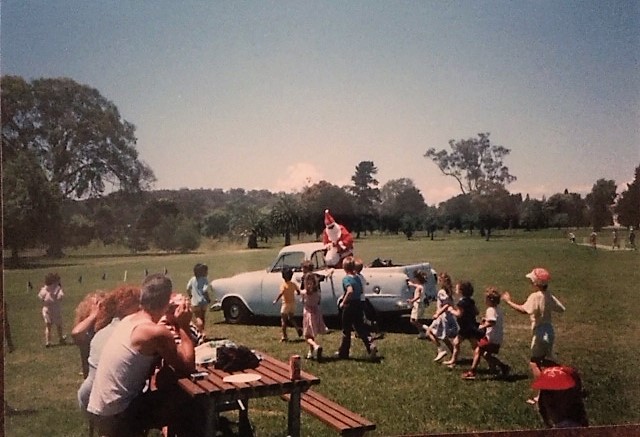
Father Christmas arriving on the cricket oval. c 1970s. Photo courtesy of Eric and Pam Wrigley

